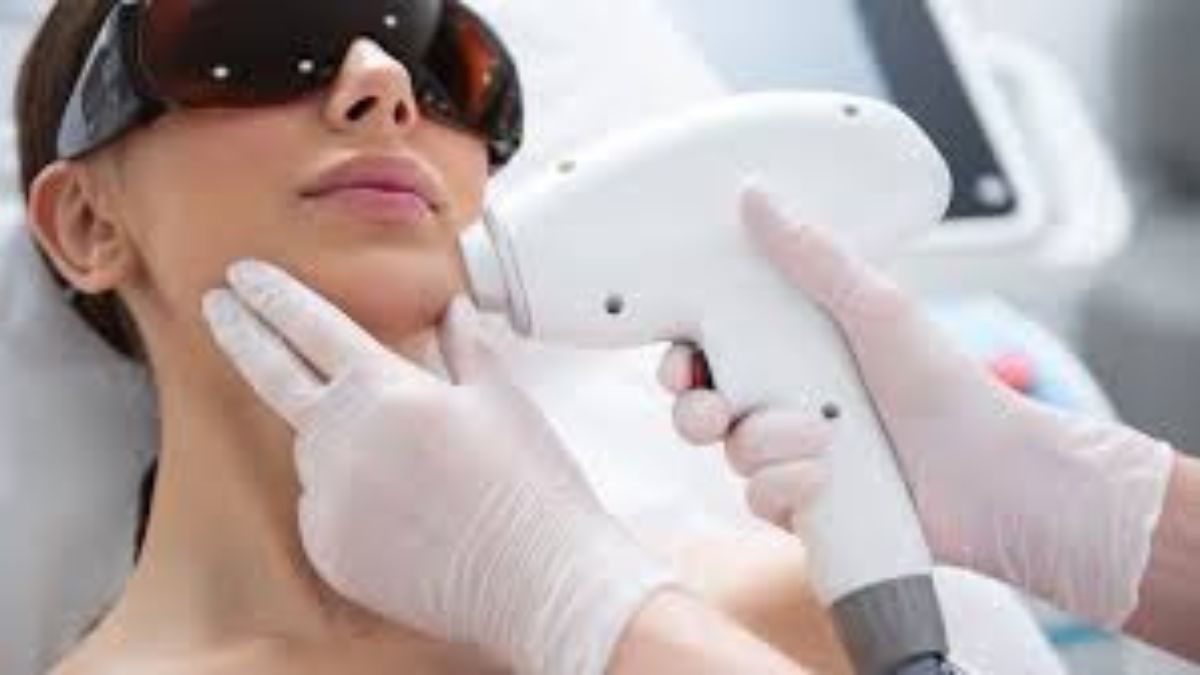HEALTH
Choosing the Perfect Integrative Medicine Treatment for Your Needs

What is Integrative Medicine?
A cutting-edge approach to healthcare, integrative medicine aims to combine complementary or alternative therapies with established medical procedures. The main goal is to treat the patient holistically, including attending to their physical, emotional, mental, and spiritual needs and symptoms. This holistic viewpoint is becoming increasingly popular because it acknowledges that optimal health involves more than just being free from illness. Within this context, Integrative Medicine Aspen is a provider that fully embraces these principles, offering patients many therapies designed to create balance and well-being. Integrative medicine focuses on personalized treatment regimens, combining evidence-based medicine with complementary therapies like mindfulness exercises, dietary counseling, and acupuncture. Instead of only treating symptoms, they combine these approaches to address the underlying causes of health problems. This all-encompassing approach promotes long-term health and wellness by enabling patients to engage in their recovery process actively.
Assessing Your Health Needs
When looking at integrative medicine solutions, it’s essential to determine our health needs. Consider your overall health, chronic illnesses, and medical issues. Think about your health objectives: Do you want to improve your immune system, reduce pain, manage stress, or increase your energy levels? Knowing these components can help determine which complementary therapies might be most helpful. Additionally, clearly understanding your goals will help you have a more fruitful conversation with medical specialists, allowing them to customize their advice to your situation.
Exploring Popular Integrative Therapies
Under the general heading of integrative medicine, a wide range of treatments are bundled together, each intended to address different elements of health. To regulate energy flow, acupuncture, an ancient Chinese medical procedure, involves putting needles into particular body locations. Research indicates that acupuncture can be a valuable tool for relieving symptomatic joint pain, especially for those with arthritis. Other well-liked therapies include nutritional counseling to improve eating habits and promote a healthier lifestyle and massage therapy to relieve stress and ease circulation. Investigating each technique’s various benefits can lead to holistic health solutions that traditional medicine might need to address fully.
Consulting with Healthcare Professionals
Engaging in detailed consultations with healthcare professionals is crucial before adopting new integrative treatments. Qualified practitioners can provide insights into how different therapies can be safely and effectively integrated with your existing medical regimen. Their expertise is invaluable, particularly when managing complex conditions or considering treatments that might interact with medications. These conversations enable you to make informed decisions, access evidence-based practices, and craft a healing journey that marries the best of traditional and alternative medicine.
Considering Your Lifestyle and Preferences
Successful integrative medicine experiences often depend on how well therapies fit into your everyday life and align with your personal preferences. Some treatments may require time commitments that could interfere with work or personal responsibilities. Consider how frequently you’ll need to visit practitioners and whether you’re comfortable incorporating these therapies into your routine. Moreover, personal preference plays a significant role; for instance, some people might find meditation beneficial for stress relief, while others might prefer physical activity. Understanding your lifestyle and preferences ensures that chosen treatments are manageable, thus enhancing adherence and effectiveness.
Researching Evidence-Based Practices
Conducting thorough research is essential in determining which integrative therapies suit you. Look for evidence-based practices—therapies with credible studies backing their efficacy and safety. Find reliable sources of information, such as peer-reviewed journals and established health organizations, offering analyses of complementary and alternative medicine. Adopting a critical approach helps you better discern which treatments could provide legitimate benefits without unnecessary risk.
Creating a Personalized Treatment Plan
Creating a customized treatment plan with medical professionals is essential to success in integrative medicine. A plan like this should be flexible and consider your health objectives and demands. It might consist of a specially designed combination of conventional and alternative native therapies. Combining alternative and traditional treatment can improve overall health outcomes by targeting the underlying causes of illness and fostering a comprehensive feeling of well-being.
Monitoring and Adjusting Your Plan
Health journeys are rarely linear; your treatment strategy should change as you go. Consistent observation guarantees that your treatments continue to be applicable and valuable. Regular reviews with your physician can help identify what is effective and what may require adjustment. This proactive strategy allows you to stop using no longer necessary therapies or introduce new ones on time. Modifying your plan as needed opens the door to long-lasting health gains as your needs evolve.
HEALTH
How to Choose the Right Cheese for Your Recipes

Few ingredients can change a dish like cheese can. Whether it is creamy pasta sauces, crisp pizzas, sandwiches, or salads, cheese adds a touch of texture, flavor, and depth that makes even the most basic foods seem fancy.
However, with hundreds of varieties of cheeses on the market, each with its own distinctive tastes, melting behaviors, and applications, selecting the right cheese can be overwhelming.
Whether you’re a home cook or a would-be chef, knowing how to match your recipes with cheese can be the key. Here’s how to always pick the best cheese.
Understanding Cheese Basics
It is helpful to understand how each type of cheese is differentiated. Cheese can be classified by texture, taste, and milk base to aid in making the appropriate selection.
Texture
Light creamy cheeses such as Brie, Camembert, and Ricotta are soft and mild and ideal for spreading or melting away. Semi-soft cheeses like Mozzarella and Fontina are smooth to melt, making them perfect for pizza or lasagna. Hard cheeses, such as Parmesan, Pecorino Romano, and Grana Padano, have high flavors and are grateable.
Flavor profile
Cheeses are mild, milky, sharp, and nutty. Mellow cheeses blend well in cuisine, whereas aged or strong ones add flavor and zest.
Milk source
Cow milk is creamy and sweet, goat milk has a tangy freshness, and sheep milk has a rich, earthy flavor.
Integrating Cheese into Cooking
Cheese reacts differently to heat. Knowing its reaction will assist you in choosing the most suitable one for your dish.
For melting
When you want to melt cheese, say, in grilled cheese, pasta, or fondue, you will require a smooth, melting cheese. Best choices? Mozzarella, Gruyere, Fontina, Monterey Jack, or Provolone. Use two cheeses to add richness–Mozzarella to stretch and Cheddar to add flavor, e.g.
For grating and garnishing
When grated, hard cheeses are very umami and crunchy.
- Best choices? Parmesan, Asiago, or Manchego.
- Best use? Top pasta, risotto, or salads with sprinkles to add a savory taste.
For baking
When preparing casseroles, quiches, or baked pasta, use cheeses that do not get greasy.
- Best choices? Gruyere, Swiss, or mild Cheddar.
- Do not use only mozzarella; it may cause too much moisture in baking.
For spreading and dips
Soft cheeses add creamy texture and subtle richness to spreads or dips.
- Best choices? Cream cheese, Ricotta, or Mascarpone.
- Best use? Add herbs or garlic to make dips or sandwich fillings packed with flavor.
Combining the Cheese with Flavor Profiles
The other ingredients are not overwhelmed by cheese; they do not play the second fiddle.
With savory dishes
Intense flavors like meat, garlic, and tomato-based sauce pair well with aged cheeses that can handle the challenge. Cheddar, Asiago, Parmesan, or Gruyere in burgers, pasta, or casserols.
Gusts with sweet or tender tastes
Mild cheeses are an advantage to lighter dishes like fruit salads, pastries, or white sauces. Examples: Ricotta, Brie, or Cream Cheese combined with fruits, honey, or herbs.
With spicy foods
To balance spice, use creamy cheeses that are calming to the palate. Examples: Mozzarella, Queso Fresco, or Monterey Jack in tacos, Nachos, or spicy soups.
Cheese Choosing by Recipe Type
You can explore any of these:
Pizza and pasta
Mozzarella is a traditional pizza topping because it melts and stretches; however, mixing it with Provolone or Parmesan can enhance its flavor.
Parmesan and Pecorino Romano are the best finishing cheeses for pasta, and Ricotta is a great filling for lasagna or ravioli.
Sandwiches and burgers
Cheddar, Swiss, or Pepper Jack offer rich tastes and can be melted. For gourmet choices, you can have Brie or Gouda, with their rich, creamy taste.
Salads and appetizers
Toss salads with crumbled feta, Goat Cheese, or Blue Cheese to add a tangy bite. Combine with fruits, nuts, and vinaigrettes to counteract acidity and sweetness.
Breakfast and brunch
Toast, pancakes, or pastries are ideal with cream cheese and Ricotta. Mild cheeses like cheddar or mozzarella are best for omelets or egg bakes because they will not dominate the flavor.
Finding a Balance Between Texture and Temperature
You don’Remember these:
- One of the most important aspects of cooking cheese is controlling the temperature.
- Soft cheeses are better served at room temperature to make them tastier and creamier.
- Finely grate hard cheeses and add to hot dishes to distribute evenly.
- Cheese should not be overheated since it may separate into fat and protein, giving it an oily feel.
- Add cheese at the end of cooking to preserve its taste and consistency.
Cheese Pairing Experiments
Preparing cheese for cooking is an art rather than a science. Don’t hesitate to experiment:
- Balance sharp and mild cheeses.
- Add dimension with herbed or smoked varieties.
- Add foreign cheeses, such as Halloumi, Cotija, or Comte, to add different textures and flavors.
For example, Halloumi is not meltable, which means that it can be grilled and served in summer salads, whereas Comte can be added to creamy dishes with a nutty flavor.
Storage and Freshness Tips
Here are some tips:
- Even the finest cheese cannot shine when it is not stored properly.
- Wrap the cheese in parchment paper, then place it in a resealable bag to allow it to breathe.
- Do not freeze soft or fresh cheeses- they become soft. Hard cheeses, on the contrary, can be frozen and grated later.
- The expiration date of checks is not important, but you can use smell and look to determine it. Fresh cheese should never grow mold (except in the case of Blue Cheese).
Your cheese must not lose its aroma or texture, and it should be stored properly to enable you to complete any dish with it.
Conclusion
Cheese is not merely a component; it is a storyteller in each dish. With the right cheese, a simple recipe can become something you will never forget, be it in the layering of lasagna, making a sandwich, or adding magic to a salad.
Knowing about texture, melting properties, and pairing principles, you will be able to make certain cheese choices that harmonize with your dishes and amaze each taste. The next time you cook, think outside the box. The ideal decision may be the secret ingredient your recipe has been lacking. Finally, visit maestrella.com to learn more.
HEALTH
Simple Strategies For Supporting Loved Ones Through Addiction Recovery

Understanding Addiction Recovery: What Families Need to Know
Supporting a loved one through addiction recovery is a deeply compassionate act, but also a journey filled with challenges and learning. Addiction is a chronic, complex condition, and successful recovery depends not only on professional treatment but also on the supportive environment provided by family and friends. Local options like addiction treatment Yorktown Heights NY can be an important resource in this journey, offering specialized counseling and therapy for individuals and families. It’s vital to recognize that recovery is rarely a linear process. Relapses can occur and are often part of the journey, not an end to it. By learning about the stages of recovery, family members are better prepared to offer the right kind of support without placing undue pressure on their loved one. Understanding the nature of addiction, the neurobiological factors, and the triggers involved makes family support more effective and compassionate.
Common Barriers To Support And How To Overcome Them
Families often face barriers when trying to support someone in recovery. One major challenge is the fear of enabling harmful behaviors while trying to offer support. There is a delicate balance between being helpful and inadvertently making it easier for the person to continue unhealthy habits. Stigma surrounding addiction can also make it difficult to speak openly or seek help. Additionally, the emotional toll of witnessing a loved one struggle can lead to frustration or burnout. Education is one of the most powerful tools for overcoming these barriers. Connecting with support networks, reading reputable sources, or participating in counseling sessions can clarify misconceptions and provide actionable strategies. Families who take time to learn and connect with others in similar situations feel more empowered and less isolated, allowing them to sustain supportive relationships through the ups and downs of recovery.
Creating Open Lines Of Communication
Effective communication is essential throughout the recovery process. Open and honest dialogue creates a safe environment for your loved one to share feelings, setbacks, and achievements without fear of judgment. The focus should be on listening more than talking—allow your loved one to express themselves, and respond with empathy rather than advice or criticism. Active listening can be practiced by summarizing what your loved one says, maintaining eye contact, and asking clarifying questions to ensure understanding. Avoid blame or rehashing past wrongs—instead, center conversations on current needs and future goals. This foundation of trust can make recovery feel less isolating and more sustainable.
Setting Healthy Boundaries Without Guilt
Boundaries not only protect your own well-being but also create a structure in which recovery can flourish. Clear boundaries—such as refraining from giving money or enabling destructive behaviors—help establish trust and respect on both sides. For example, you may decide to offer rides to appointments or provide emotional support, but draw the line at paying rent or covering debts. Setting and maintaining boundaries can be challenging emotionally, and sometimes guilt may arise. Remind yourself that healthy limits are a form of caring and are vital for everyone’s mental health. Consistent boundaries reinforce accountability, which is invaluable for sustained recovery.
Providing Practical Support in Everyday Life
Small acts of support can have a profound impact. This could be as simple as offering a daily check-in, preparing nutritious meals, or accompanying your loved one to therapy or group meetings. Social support networks are crucial in maintaining sobriety and reducing relapse rates. You may also help your loved one develop healthy routines, celebrate their achievements, and encourage participation in positive social activities. Remember, the strongest support often comes through consistency and presence, rather than grand gestures.
The Role Of Self-Care For Supporters
Supporting someone in addiction recovery can be emotionally draining. Focusing on your own self-care—whether through exercise, relaxation, or hobbies—helps sustain your resilience and emotional well-being. Support groups or other community resources offer a safe space to share feelings and learn from others facing similar challenges. Practicing self-care enables you to stay present, patient, and effective in your supportive role. When you take care of yourself, you’re better equipped to support your loved one for the long term.
Knowing When To Seek Professional Help
There are times when professional intervention becomes necessary. Signs that your family could benefit from outside help include increased arguments, emotional exhaustion, or a sense that progress has stalled. Group therapy, individual counseling, or family therapy can all provide tools and guidance tailored to your specific situation. If you suspect your loved one’s safety is at risk or if you’re unsure about the best course of action, reach out to an experienced addiction counselor or a healthcare provider trained in substance use disorders. Professional support can be a turning point—not only for your loved one but for the entire family dynamic.
Conclusion
Supporting a loved one through addiction recovery is a journey that requires patience, understanding, and compassion. Families play a crucial role by fostering open communication, setting healthy boundaries, providing practical support, and prioritizing their own self-care. While challenges and setbacks are part of the process, education, empathy, and professional guidance can empower families to navigate these difficulties effectively. No one walks the recovery journey alone, and the presence of a supportive, informed family can make a profound difference in both the loved one’s recovery and the family’s own well-being. Remember, small, consistent acts of care and support often have the most lasting impact, reinforcing hope, resilience, and the possibility of sustained recovery.
HEALTH
Long-Term Solutions for Unwanted Hair Removal

Key Takeaways
- Laser hair removal and electrolysis offer proven, long-term reduction and removal of unwanted hair.
- Individual factors—skin tone, hair color, pain tolerance, budget, and available time—influence the optimal method.
- Recent technological innovations make long-term solutions safer and more effective than ever.
Struggling with unwanted hair is a common experience that affects confidence and comfort. While quick fixes like shaving and waxing deliver immediate results, these methods require frequent upkeep and can often lead to irritation and ingrown hairs. Pursuing longer-lasting solutions has driven many to seek professional advice, with a hair assessment Southfield, MI, offering a personalized roadmap based on your skin type, hair texture, and desired results. Personalized assessments are vital in identifying which hair removal method works best for your unique needs and goals. Understanding the spectrum of enduring hair removal options—from modern laser therapies to time-tested electrolysis—empowers you to make well-informed decisions. Each technology has its own strengths and limitations, making professional guidance invaluable as you weigh your options. Consulting with specialists during a hair assessment lets you learn what is possible for your skin and hair type and what to expect regarding permanence, safety, and investment.
Laser Hair Removal: Harnessing Light for Lasting Results
Laser hair removal utilizes focused beams of light that penetrate the skin, targeting the pigment in hair follicles to disable their future growth. This approach works particularly well for people with lighter skin and darker hair, as the dark pigment absorbs the laser energy. The outcome is a significant reduction after several sessions, with many individuals experiencing up to 90% permanent hair reduction in treated areas after a recommended series of treatments. However, those with lighter hair colors or deeper skin tones may see variable results, as the contrast between hair and skin is key to success. Regular touch-up sessions may be needed to maintain results, particularly if hormonal changes stimulate regrowth.
Electrolysis: The FDA-Approved Permanent Solution
Electrolysis is the only hair removal method cleared by the FDA as truly permanent. This technique involves inserting a fine probe into each hair follicle to deliver a small electrical current, destroying the follicle and preventing future growth. Electrolysis is effective for all hair colors and skin types because it does not rely on pigment but instead targets the root structure of the hair. The process can be time-intensive despite its reliability since each follicle is treated individually. It is best suited for smaller areas or those committed to a gradual path to total hair removal. Because of its versatility, electrolysis is often the go-to method for individuals with blonde, gray, or red hair who do not respond to laser treatments.
Intense Pulsed Light (IPL): A Versatile Alternative
Intense Pulsed Light (IPL) resembles laser treatments but uses a broad spectrum of light wavelengths to target hair follicles. IPL is often favored for its versatility and availability—at-home IPL devices bring professional-like treatments into the comfort of your home. However, they generally feature less power than those used in clinics. IPL works best on individuals with light skin and dark hair and often requires more sessions to achieve desired results. Though less precise, its flexibility makes it popular for those seeking gradual hair reduction across larger areas.
Comparing Costs and Long-Term Value
Investing in laser hair removal or electrolysis may seem expensive initially. Still, these professional treatments often offer better value when factoring in the cumulative costs of razors, waxing kits, and regular salon appointments over the years. Beyond financial savings, permanent options dramatically reduce daily or weekly maintenance time, freeing up your routine and providing lasting smoothness.
Considerations for Choosing the Right Method
Several factors influence which long-term hair removal solution is ideal for you:
- Skin and Hair Type: Laser is optimal for high-contrast hair and skin combinations, while electrolysis suits all variants.
- Pain Tolerance: Both methods involve some discomfort—laser typically feels like a mild snap, and electrolysis involves a slight sting as electricity destroys each root.
- Time Commitment: Electrolysis can require numerous treatments over an extended period, depending on the treatment area and hair density, while laser sessions tend to be fewer per area but spaced weeks apart.
- Budget: Assess upfront costs and the combined time and financial expenses of ongoing maintenance versus one-time permanent reduction.
Advancements in Hair Removal Technology
The field is evolving quickly, with newer technologies focused on enhancing comfort and broadening accessibility. Innovative cooling mechanisms, AI-powered devices that calibrate settings automatically for different skin types, and faster, less invasive procedures are redefining patient experiences. As consumer demand rises, expect further innovation and expanded options for safe, effective long-term solutions. For updates on these technological strides, Forbes Health provides proper coverage.
Conclusion
There has never been a better time to explore sustainable solutions for unwanted hair. By leveraging technological advances, consulting experienced professionals for a tailored hair assessment, and evaluating your preferences and needs, you can find a long-term hair removal path that aligns with your lifestyle. The right solution offers not just smooth skin but also peace of mind and freedom from the cycle of temporary fixes.
-

 BLOG1 year ago
BLOG1 year agoEscape to Tranquility Experience Grange Bardage Percheronne in Normandy
-

 LIFESTYLE1 year ago
LIFESTYLE1 year agoAir Jordan 1 Retro High Off-White University Blue
-

 SOCIAL MEDIA1 year ago
SOCIAL MEDIA1 year agoDecoding the Drive Social Media Pyramid Scheme Mystery
-

 LIFESTYLE1 year ago
LIFESTYLE1 year agoAir Jordan 4 Retro Metallic Purple
-

 HOW-TO GUIDES1 year ago
HOW-TO GUIDES1 year agoShop Smart and Save with Goldengatemax.shop Online Guide
-

 BLOG9 months ago
BLOG9 months agoDecoding 540-315-8592: From Numbers to Messages
-

 BUSINESS1 year ago
BUSINESS1 year agoDemystifying 315-442-5267 Common Myths and Facts Revealed
-

 LIFESTYLE1 year ago
LIFESTYLE1 year agoAir Force 1 Shadow Pistachio Frost
